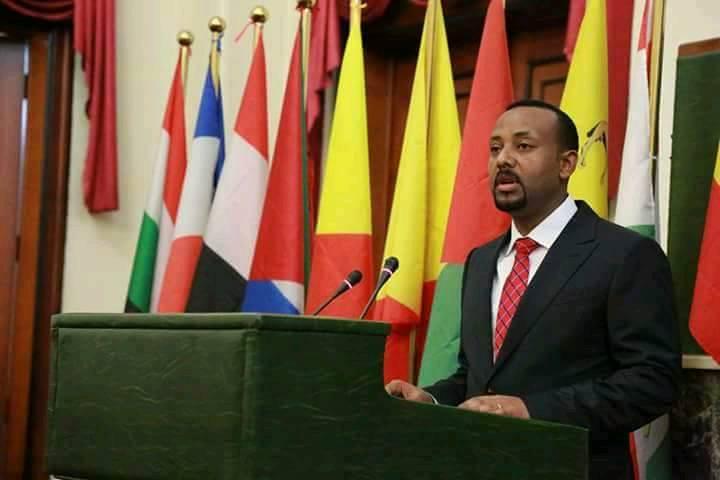Ethiopian PM calls for unity
September 21, 2018 | Expert Insights

The new Ethiopian prime minister, Abiy Ahmed has called for political parties in the Oromia region to refrain from the struggle and safeguard the ongoing reforms.
The long-standing ethnic tensions have resurfaced since the young prime minister took power just five months ago.
Background
Ethiopia has the second largest population in the Africa region with over 100 million. Present in the western African region, nearly 70% of the population is dependent on agriculture for livelihood.
The Ethiopian People’s Revolutionary Democratic Front (EPRDF) is Ethiopia’s current ruling coalition comprising of four parties: The Oromo Peoples’ Democratic Organization (OPDO), the Amhara National Democratic Movement (ANDM), the Southern Ethiopian People’s Democratic Movement (SEPDM), and the Tigrayan People’s Liberation Front (TPLF). The EPRDF has been accused of wrongful imprisonment of opposition, amongst other human rights violations.
Ethiopia’s new Prime Minister Abiy Ahmed, who took office in April, has pledged political and economic reforms to address complaints of marginalization by a number of ethnic groups. A joint report by the UN and the Ethiopian government stated that ethnic violence in south Ethiopia has sparked an ongoing humanitarian crisis. Around 800,000 people have forcefully fled their homes with lack of food and other aids.
Analysis
Prime minister Abiy, an ethnic Oromo, while speaking at the delegates conference of the Oromo People Development Organisation party (OPDO), urged Ethiopians to unite and work together to defeat those ‘who want to undermine national and Oromo unity’.
On Wednesday, a researcher at the Amnesty International told the Agence France-Presse (AFP) that ethnic violence in the capital and the Burayu town have left at least 58 people dead. It was also revealed that the victims were either stabbed or beaten to death with sticks and rocks; however, none had been shot. In Burayu, local residents said that their shops were looted and the people were attacked by mobs of Oromo Youth.
The unrest in these regions were followed by a mass rally which marked the return of the leadership of the exiled Oromo Liberation Front (OLF) group back to the country. The group had played a major role in fighting the insurgency for self-determination of Oromos, Ethiopia’s largest ethnic group.
After coming to power the prime minister has lifted a state of emergency, freed political prisoners and even removed leaders of banned groups including the OLF from a blacklist, paving the way for their return to the country. However, these reforms are yet to have any positive impact as the ethnic violence in the country still persists. Clashes between Oromos and ethnic Gedeos in the south have caused nearly a million people to flee their homes.
The vice president of OPDO and the Ormia region’s president, Lemma Megersa has also reiterated Abiy’s efforts. He said that the region is willing to take full responsibility to rehabilitate the victims of the attacks. In the conference he urged the political parties to safeguard the ongoing reforms and engage in dialogues to resolve differences.
The ethnic conflicts in Ethiopia are largely fueled by grievances over land and lack of resources. The Ethiopian government estimated late last month that US$117.7m was urgently required to alleviate the crisis. “The violence is small-scale but significant when you take into account other border conflicts in Ethiopia,” Ahmed Soliman, a research fellow in the Africa Programme at Chatham House.
Counterpoint
The Prime Ministers efforts to bring peace and stability to the country after taking office is indeed commendable. However, the biggest risk is that his advocacy of reforms has not been received with confidence by the public due to widespread poverty and struggle over resources.
Assessment
Our assessment is that the new PM was successful in ending the 20-year long dispute between Ethiopia and Eritrea. However, a larger task in hand for would be to address the present crisis within the country while holding together the coalition. We believe that the political leaders must create policies and mechanisms that ensure sustainable use and distribution of its resources. We believe these reforms will initially pose a threat to the existing systems in Ethiopia but in the long run it would help end violence and be a potential game changer.








Comments